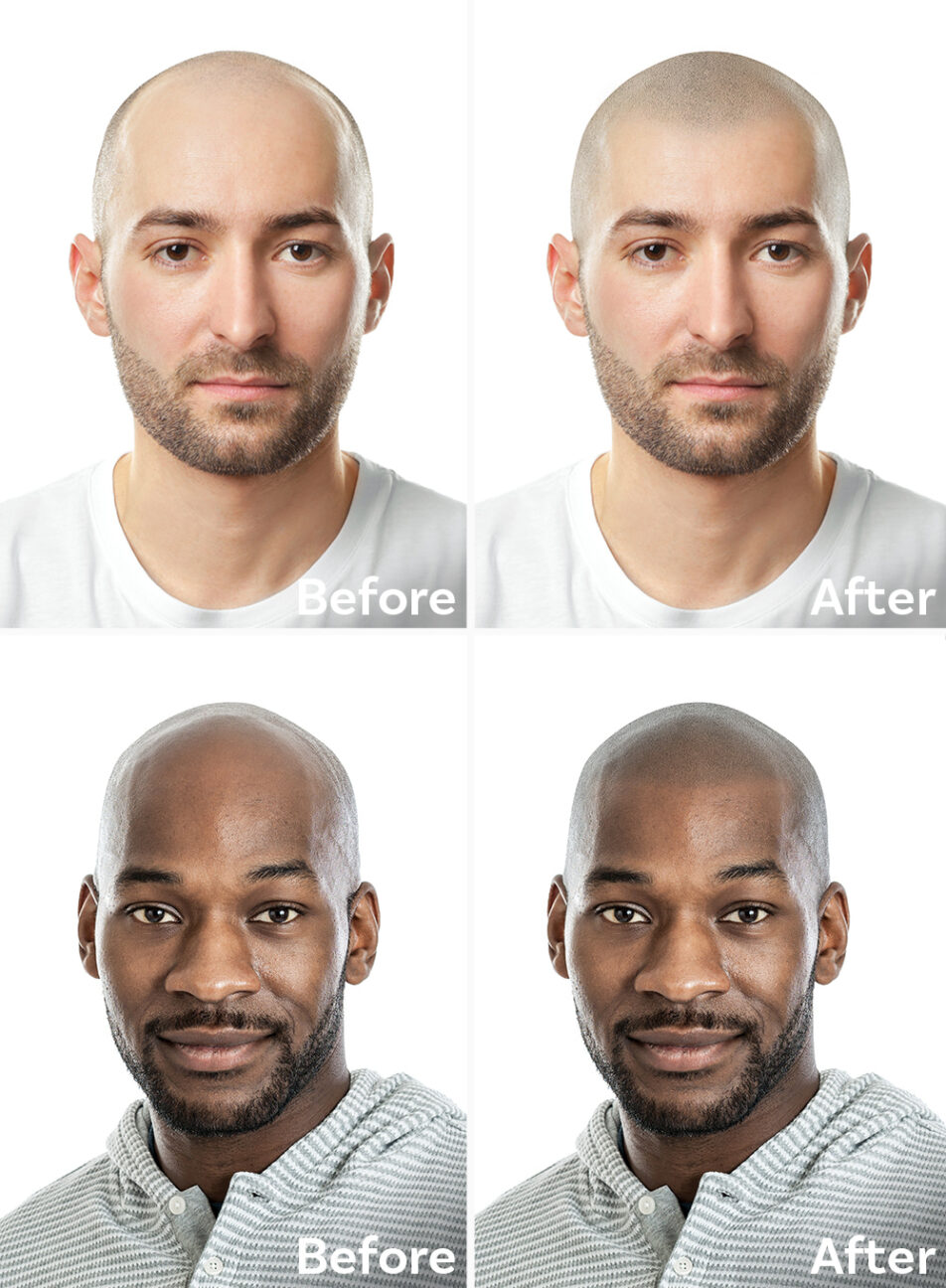What’s The Link Between Ketogenic Diets & Hair Loss?
Today we discuss ketogenic diets and hair loss. The American Academy of Dermatology (AAD) suggests that the natural hair growth cycle means you should shed between 50 to 100 hairs each day. There has been much speculation lately, but if you are on a keto-diet and experiencing more shedding than average, it could be a result of multiple stressors, including a dramatic change in your diet.
What is a Keto diet?
To quickly summarize, keto is short for ketogenic which is a diet plan that consists of higher fat, moderate protein, and low-carb consumption. The idea behind keto-diets is that it forces the body to burn fats rather than carbohydrates. It started being used in medicine as a way to treat epilepsy in children.
The ketogenic diet essentially uses the fat you consume as an energy source which prevents it from being stored. It has been proven to offer many weight loss benefits by putting your body into a metabolic state known as ketosis. When your body is in a state of ketosis, the liver produces ketones which become the main energy source for the body.
Researchers found that the keto diet reverses how our bodies have been functioning for some time. Fitness and nutrition experts believe that the body was designed to run more efficiently on using fat as fuel as opposed to sugar (carbohydrates).
Great! But why are people losing their hair… Literally?
When implementing certain keto-dieting habits, the rate at which your body burns fat increases, this is due to the increase of the chemical ketone that is found in the liver. Where a shortage of insulin occurs (the blood sugar regulation hormone) ketones are produced to break down body fat for energy. Ketones in the urine is a sign that your body is using fat for energy instead of using glucose because not enough insulin is available to use glucose for energy.
There are many reasons as to why people could be losing hair while on a keto-diet, one of the more common reasons is due to lack of consumed calories. Calories are a unit of energy measurement and the body has to consume enough calories on a daily basis to maintain certain healthy functions. Of those calories, you have fat, carbohydrates, and protein. Without calories, your body would not be able to heal itself or grow.
A large challenge many people face when starting ketogenic diets is that they do not consume enough calories which result in their body not producing enough energy to grow hair, nails, and muscle tissue are some examples.
How to overcome hair loss from Ketogenic dieting?
There are many benefits of following a healthy keto-diet some include weight loss, blood sugar control, increased energy, mental focus, healthier cholesterol and blood pressure levels, insulin resistance and less acne.
The idea behind keto-diets is that it may temporarily increase the rate at which you shed hair, as your hormone levels respond and adjust your metabolism shifts to using and burning more fat.
3 Tips to help treat temporary hair loss from keto-diets
1. You are less likely to experience hair loss on a low-carb diet if you focus on consuming enough calories.
2. Maintain low-stress levels while on a low-carb diet because stress by itself is another contributing factor to hair loss. Things like pregnancy, intense workouts, diseases, emotional stress, and starvation can add significant additional stress to your body.
3. Consider other hair loss causes. Anemia, hypoglycemia, overactive immune system, or just genetics are other factors that could be contributing. Consult with your physician to find out what could be the cause.
Hair loss from ketogenic diets aren’t as common as you think
Ketogenic diets and hair loss have been shown to have a direct correlation with each other. There are many possible reasons yet no proven way to reverse or cure it. One study done by the International Association for the Study of Obesity (IASO) found that keto-diets can increase the chances of appetite suppression. There is potential that the lack of appetite could be a factor to why many people find it difficult to consume enough calories while on this carbohydrate-restricted diet.
Hair loss whether temporary or permanent can occur for many reasons, one of the more common being stress. When to start a diet that is completely different than what your body is accustomed to it creates more stress. The good news is that if you are someone who experiences hair loss 3 to 6 months after starting your new diet, the hair loss should only be temporary.
Temporary hair loss is relatively rare after starting a low-carb diet, most people never notice anything like it. According to Nutritional Expert and Sunday Telegraph Contributor Melanie Brown, only about “10% of people on carb exclusion diets experience hair loss”. This is possibly due to lack of nutrients like B vitamins and silica. When you get ready to replace or remove a food group it’s a safe idea to find supplements for the lack of nutrients.
Skalp® have clinics around the world. We have clinics in Los Angeles, London, Manchester, Edinburgh and Dublin.
Book an appointment for a complimentary consultation today
Top Related Posts:
Can Wearing Hats Cause Hair Loss Or Balding?


